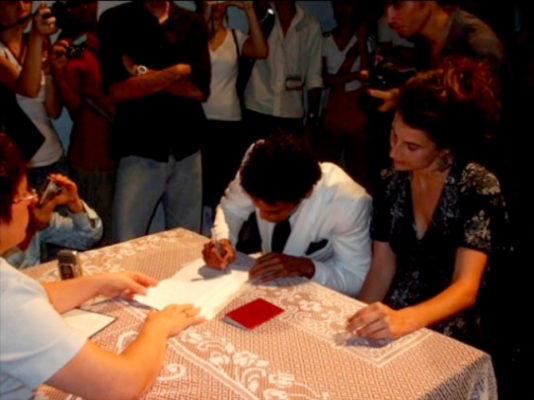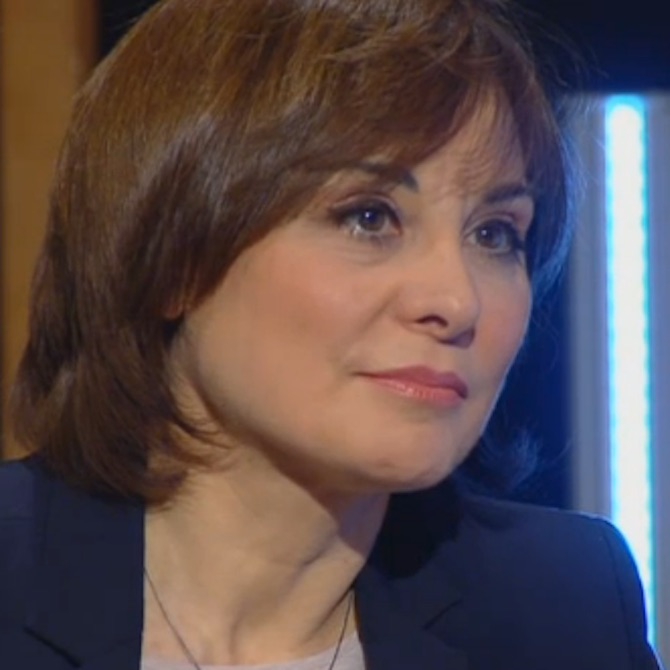Search
To search for an exact match, type the word or phrase you want in quotation marks.
A*DESK has been offering since 2002 contents about criticism and contemporary art. A*DESK has become consolidated thanks to all those who have believed in the project, all those who have followed us, debating, participating and collaborating. Many people have collaborated with A*DESK, and continue to do so. Their efforts, knowledge and belief in the project are what make it grow internationally. At A*DESK we have also generated work for over one hundred professionals in culture, from small collaborations with reviews and classes, to more prolonged and intense collaborations.
At A*DESK we believe in the need for free and universal access to culture and knowledge. We want to carry on being independent, remaining open to more ideas and opinions. If you believe in A*DESK, we need your backing to be able to continue. You can now participate in the project by supporting it. You can choose how much you want to contribute to the project.
You can decide how much you want to bring to the project.

In 1970, Hannah Arendt gave a lecture titled “Civil disobedience”, that she defined as “what arises when a significant group of citizens becomes convinced that the normal channels for change no longer function, or that the Government persists in modes of action, that the legality or constitutionality of which are open to grave doubts”. She specified that, “civil disobedience can’t be compared with the criminal, because there is a big difference between the crime that is hidden and the disobedience that defies the law in the full light of day. What is more, civil disobedience is incompatible with violence, as, unlike the revolutionary, civil disobedience accepts the existing authorities and general legal framework”.
Arendt, who gave this conference, right in the middle of the Vietnam War, observed that, “modern societies are subject to an accelerated process of change, that is legalised by law once it has occurred, but that usually is the result of extrajudicial actions. In the face of this change, the channels for citizens to participate in politics are frequently insufficient. In fact, the system of representation is in crisis, largely because the parties have become bureaucratised. Hence there is a corresponding growing relevance for civil disobedience in modern democracies: it constitutes an extreme manifestation of the right of the public to join together to make demands on the government or to protest about its decisions”.
History is full of cases of civil disobedience that have served to conquer social rights, like the suffragette movement or the public transgression of racial laws, to mention only two highly significant ones. But it is not necessary to go so far back in time. “There is the justification for a movement of civil disobedience in Spain” was the outstanding headline of Alberto Fraile’s interview with Ignacio Ramonet, director of Le Monde Diplomatique, published last summer in El País.
The exhibition that Núria Güell is currently presenting at the ADN Galería doesn´t deal specifically with civil disobedience, but it does present facts and situations that could become triggers for such actions. Alegaciones desplazadas (Displaced allegations) is the title of the artist’s first impeccable solo exhibition in this gallery, for which she has brought together a selection of works that constitute a good sample of her career up until now.
In her projects, Núria Güell analyses the institutions that govern us and evidences the abuses of power that are permitted within the margins of legality of these very institutions. Her working process includes an analysis, based on data and situations (like Hans Haacke), a questioning, followed by a laying out of the evidence (in the manner of the filmmaker Michael Moore or, more close to home, the journalist, Jordi Évole in his programme Salvados), finally carrying out an action with real impact, often employing the same strategies at the interstices of legality, that could function as a sort of example and prior step, as we said at the beginning, for this civil disobedience that at the moment seems so justified and necessary.
Alegaciones desplazadas is a journey through eight works by the artist that forms an itinerary of different problems that evidences the abuse of power of institutions, such as the banks, legislative powers or immigration policies. The oldest piece Offisde (2009) like the more recent Humanitarian Aid (2008-2013), refers to this latter sphere. In the first, she counted with the participation of an unemployed African immigrant, with an urgent need to renew his residency permit in Spain. Güell contracted him to play hide and seek in the exhibition space. At the same time, this very contract enabled him to regularize his situation in the country. Humanitarian Aid, is a longer and more complex project. Realised in Cuba, it stems from an open call in which the artist offered herself as a wife to any Cuban interested in emigrating to Spain. The outline of the open call specified that the applicants must “write the prettiest love letter in the world”. The winner was selected by a jury, made up of three “jineteras” (prostitutes for foreigners), after which the wedding took place and after a prudent period of time, nationality having been obtained, a divorce was set in motion. In her presentation in ADN the project is made up of a video that incorporates the whole process and which sagely combines the most documentary aspects with kitsch touches (what stand out are the scenes of the jury deliberating as well as the images showing the veracity of the romantic relationship to be shown as proof to the Spanish authorities), along with the letters from different candidates and the contract signed between the winner and the artist, amongst other documents.
Tangentially related to the subject, although more centred on the abuse of power on the part of the authorities is Police Offers Contribution (2009), that under the form of a police inquiry board, gathers all the documentation –photographs and notes- of a series of appointments set up with different policemen in La Habana (who are prohibited from having sexual or intimate relations with foreigners) who she invited, as if to a date, to the exhibition space.
In Displaced Legal Application #1: Fractional Reserve and #3 FIES, Güell questions respectively the banking system and certain prison policies. In the first, she organised a series of lectures under the title “How to expropriate money from the banks?” for which she counted on the collaboration of three expropriators: Lucio Urtubia, Enric Duran and the economist Qmunty, that took the form of a publication that outlines ways for creating money out of nothing, following the same manoeuvres employed by banks.
We began talking about civil disobedience and have ended up with tactics that could make it possible. With her proposals, Güell seeks to have a real impact on the aspects that she questions, sometimes in a more documentary or combative manner and in others, underlining the more personal and human aspects. This brings to mind a recent interview with Federico Mayor Zaragoza in which he talked about the need for citizens to move into action, and remembered, not by chance, Rosa Parks.

Montse Badia has never liked standing still, so she has always thought about travelling, entering into relation with other contexts, distancing herself, to be able to think more clearly about the world. The critique of art and curating have been a way of putting into practice her conviction about the need for critical thought, for idiosyncrasies and individual stances. How, if not, can we question the standardisation to which we are being subjected?
www.montsebadia.net
"A desk is a dangerous place from which to watch the world" (John Le Carré)